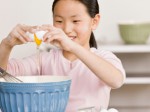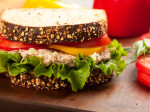 Birthday parties should be fun and the chance to celebrate a child’s special day with a minimum of work and cost for busy parents.
Birthday parties should be fun and the chance to celebrate a child’s special day with a minimum of work and cost for busy parents.
The form that birthday parties take really depends on the age of the child and the type of activities that attract them. The main principle is to have an activity that is fun and uses lots of energy. See party games for ideas. If the party can be timed to fit around a normal meal time then “junk” foods can be kept to a minimum. This can be very important to the health of children with special dietary needs, such as the overweight and diabetic, particularly if they receive lots of party invitations within a short space of time.
Activity ideas
Children 1-3 years
Pre-schoolers tend to not have a lot of personal friends and so parties for this age group tend to be family affairs that are usually held at home, with more adults, such as grandparents, parents and their close friends, in attendance than children. For adult party ideas see our “tips for great partying this summer”.
If this is the case then most of the food served is usually normal family food with maybe some jelly and ice-cream and a birthday cake thrown in. Efforts to provide a party atmosphere may focus more on the balloons and squeaky toys than the food. If you want an outdoor setting and the weather is fine a picnic at a playground can be fun provided you have enough parents to help.
Children 4-5 years
Once children are involved with play centres, kindergartens and music groups etc they get invited to more parties. This often leads onto a reciprocal process which can get out of hand if you’re not careful to limit numbers.
Activities for this age group might include inviting in a clown, or a story-teller, a face painter, or balloon man and for those with more cash a bouncy castle.
Children 6-10 years
Planning a party for these age groups is often easier if the groups are smaller. Activities might include a sleep over, going to the movies or a swimming pool and hydro slide, ice skating or roller-blading.
Children 11-17 years
Providing an activity to interest this age group can become expensive. Paintball, indoor sports, ten pin bowling, pampering sessions for girls at home, horse riding. Once again only inviting a few children will help
Ideas for food your children can help to prepare
You don’t have to do it alone. Children will feel very proud if they can announce to their friends at the party that they actually helped to make a contribution.
Barbeques
If having a barbecue meal, encourage the children to help make the meat ball patties, or butter bread, or make garlic bread. They certainly won’t object to eating the finished product.
School-aged children can prove to be quite creative when asked to make a salad, provided they know what is expected of them, and ingredients are provided.
Homemade hamburgers and souvlaki
These are easy to do if you cook the meat on the barbeque and then let the children assemble their own combinations but expect some mess.
Bread cases filled with savoury fillings
Try creamed corn; bacon, ham with egg, or grated cheese and ham and bake in pattie pans. Young children love rolling out the bread and cutting it out with a biscuit cutter.
Fruit kebabs
Even very young children of three or four are able to thread cubes of cheese onto toothpicks with glaze cherries, pineapple cubes, dates, prunes, or dried apricots, and stick the toothpicks into an orange or apple.
Meat kebabs
These are also fun for children to help to make the day before.
Pizzas
Pizzas are always welcome at parties. Making a scone base is economical but if time is short use ready-made bases or pita bread. Favourite toppings may include spaghetti, grated cheese, pineapple, ham, salami, or bacon bits. Or you may prefer to go out to a Pizza restaurant and take along your own birthday cake.
Fruit truffles
These can be fun to make the day before so long as a parent is on hand to help children use the food processor. Simply combine dried fruits such as dates, apricots, sultanas, and nuts in a blender with some rolled oats or muesli, and a little fruit juice or honey, and process briefly. Roll the sticky mixture in or chopped nuts.
(Adults may like to add a little fortification to the same mixture for their own party treats).
Cheese balls
Cheese balls are also fun for children to make ahead of time. Just combine some grated cheese with cottage cheese, some dried fruit or drained crushed pineapple, and roll the balls in crushed cereal or chopped parsley. For the sophisticated palate, chopped gherkins, capers, or glace cherries can also be added. These balls keep well in a plastic container in the fridge for at least a week.
Pita bread chips
Have tried making your own? They are easy to bake the day before and are great served with humus, salsa or guacamole.
Popcorn
Try making the air popped corn as it has less salt and butter.
Dessert ideas
Birthdays are special occasions that usually feature jelly and ice-cream at some stage. But here are some other ideas:
Jelly whip desserts
This is easily made by beating evaporated milk with a jelly and then chilling. A very cheap dessert to make although if made by small children it does take a relay of willing beaters as little arms tire quickly.
Frozen yoghurt
Make this by dissolving a raspberry jelly in hot water, cooling it, and then adding the jelly to hulled fresh berries and plain yoghurt. Freeze.
Knickerbocker Glory
This is fun to make the day before and if served in a tall glass you can layer the jelly with low-fat ready custard, fruit and yoghurt.
Ice-cream cake
Such an easy option. Whether you make your own (to combine your child’s favourite flavours) or buy one ready-made, you know this dessert will always be popular.
Drinks
Children need at least 6-8 drinks per day, more if they are very active.
Fruit juice
If serving fruit juice to children, dilute the juice 5 parts water to 1 part juice (not only is this more refreshing but reduces tooth decay). For a change try combining soda and fruit juice. This can be extended into a fruit punch, for a party, by adding cold tea, ice, and mint. Encourage them also to drink iced water.
Milk shakes or smoothies
These are something children can prepare themselves provided there is supervision. If not then just offer 250ml chilled packs of flavoured milk
Tips to minimize effort
If you can save time and effort then you maximise the fun factor and every one has a good time.
Paper plates, serviette and disposable cups and straws
These are easy to clean up when you point the children towards the rubbish tin.
Accept help
If other parents, friends or relatives offer to help, say “yes” give them a job and a big hug. Conserve some energy so you can enjoy the party too.
Catering for special dietary needs
When you send out invitations be sure to check if there are any special dietary considerations such as allergies and intolerance, diabetes, gluten-free or vegetarian. If you are able to provide this food with no fuss the child concerned will have more fun. If you are unsure of what to feed them then talk to the child’s parent they may send some food along to help or contact us for recipe ideas.























































Leave a Reply